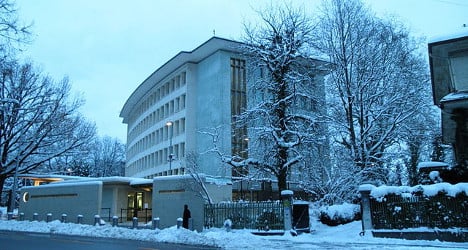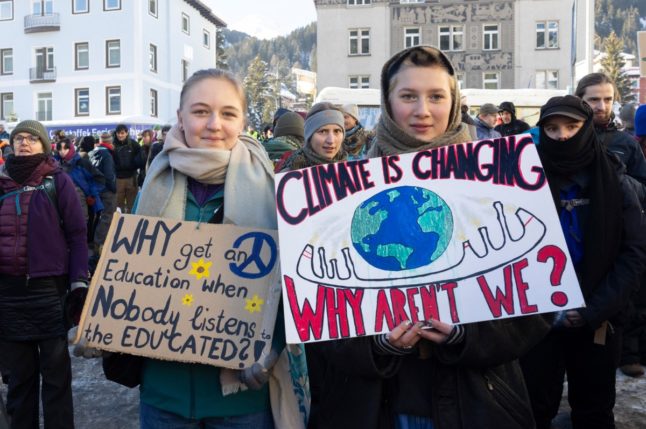The group of seven visited the US embassy in the Swiss capital on Saturday in order to pay their respects to the three Muslim students who were murdered in Chapel Hill, North Carolina, on February 10th, reported newspaper 20 Minuten.
“We were sad to learn of the deaths of these students,” said a member of the group, who wished to remain anonymous.
On arriving at the embassy the group were soon joined by police.
“We quickly saw three police cars arrive, each with two officers inside.”
“They checked our identities. We weren’t even inside the perimeter of the embassy, but the police officers nevertheless took our passports and photographed them.”
Contacted by 20 Minuten, Bern cantonal police confirmed that a routine identity check had been carried out.
It is not exceptional that several police officers are mobilized for an ID check on a group of people, said a spokesman.
“After discussing the matter with the ambassador, the people were allowed to lay their flowers in front of the building,” spokesman Christoph Gnägi confirmed.
The Islamic Central Council Switzerland (IZRS) subsequently highlighted the incident on social media.
Contacted by 20 Minuten, IZRS spokesman Qaasim Illi said they didn’t understand the police action.
“The people concerned were intimidated during the identity check. There was simply no reason to check them,” he said.



 Please whitelist us to continue reading.
Please whitelist us to continue reading.
Member comments